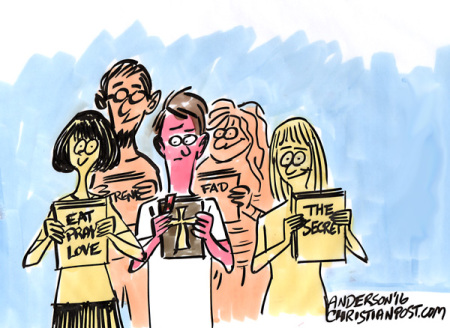Which Way for Evangelicals in a Secular Age?

In our new secular age, there are two possible trajectories for evangelical churches, Christian philosopher James K.A. Smith argued at Faith Angle Forum.
Smith's March 14 talk, "Re-Imagining Religion in a Secular Age," to 20 journalists plus other attendees in Miami Beach, sought to explain different ways of thinking about secularism and how those distinctions can aid our understanding of religion in the public square.
"Secular" can be understood in different ways, Smith explained. It can refer to things that are worldly, as opposed to sacred, spiritual or not religious. This view has led, in some circles, to a view that secular is neutral, or objective, while religious views are unobjective, or value laden.
Smith prefers a different way of thinking about secularism.
Leaning upon the work of philosopher Charles Taylor, Smith says that in our "secular age," religious beliefs should be one option among many different contestable options. The secular age, therefore, does not entail an absence or weakening of religious belief, as the "secularization thesis" holds. Rather, there is a plurality of beliefs, religious and non-religious, all holding contestable views. Those views are contested in the public square.





















